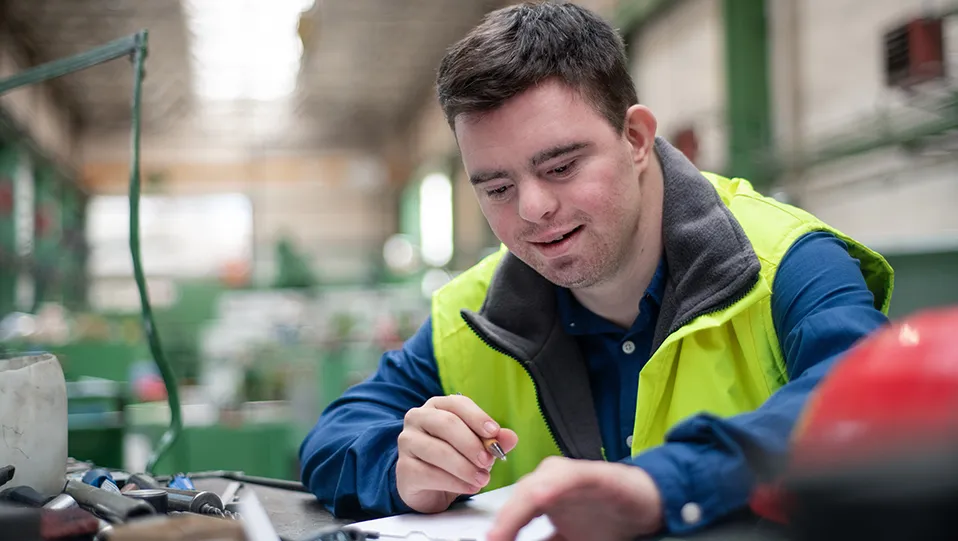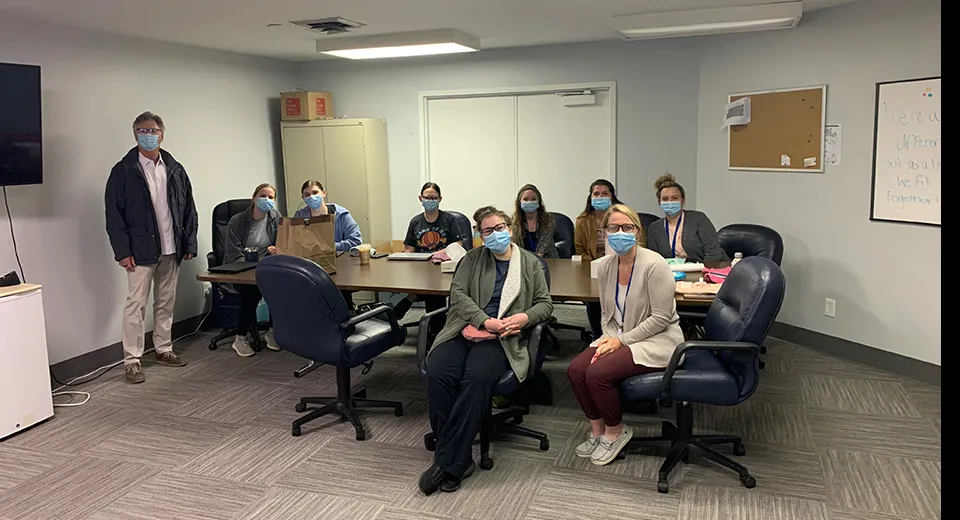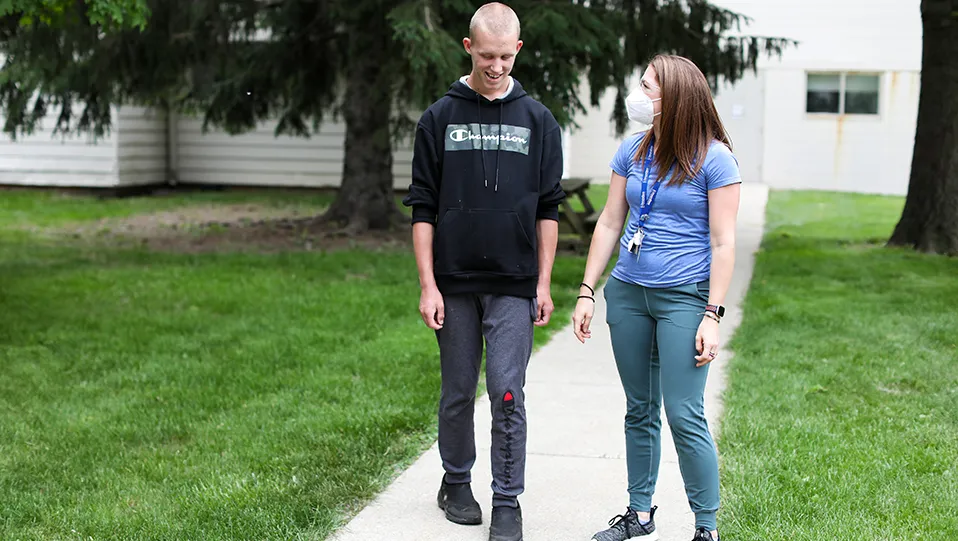Workforce Specialists Form Community Connections
- Employment Services
- Vocational Training
- Clinicians
- News

Helping our people find jobs is about more than finding them a paycheck
In West Carrollton, a small team of Boundless employees are changing lives, one job at a time. Workforce specialists help the people they serve through employment services and vocational training to find, learn, and maintain jobs that suit their talents and interests. In turn, helping them become more integrated into the community and changing the perception of individuals with intellectual and developmental disabilities (I/DD). Even though, according to Mark Miller, a workforce specialist, “The biggest impact is when we’re not there,” workforce specialists like Mark play an integral role in creating connections.
From the beginning, workforce specialists are hands-on and invested in the success of their clients. Simply, they get to know the individual, then they start learning about local companies. Each individual’s career profile is made by discussing interests and hobbies, and skills, among other things. With that profile in hand, workforce specialists begin their search for companies that match what each individual is looking for. Instead of sending individuals into a traditional interview, the workforce specialists take time to “interview” companies to find the best companies for the individuals they serve. “It’s incredibly rewarding to be so involved in a client’s success,” Melissa Engle, the workforce and community services manager, said of the active role her team takes in finding the right fit for individuals.
Once a few companies of interest are found, workforce specialists will do some job seeker training with each individual. This often includes mock interviews, discussing employer expectations, and helping them create a resume. From there, workforce specialists focus on connecting employees with the right employers. Like any other job seeker, individuals apply and interview and are ultimately offered a job. Melissa explained, “These are real, competitive jobs, not token jobs.” Individuals are doing the work to earn these jobs, and workforce specialists guide them every step of the way.
After an individual is hired, their workforce specialist goes to work with them and attends orientation, learning the job alongside the individual. After the company-provided training is over, individuals continue to be given support by their workforce specialist, who attends work with the individual, helps them remember all their job duties, guides or redirects them, and supports them however necessary. As the individual builds their confidence and independence in their new job, their workforce specialist helps less and less. Slowly, workforce specialists transition from helping every day to checking in with less frequency. This allows the individual to become an important part of a company’s team in their own right.
Melissa explained the impact on the individual, “Our clients are so often used to being viewed as someone ‘in need,’ but they never get the experience of being needed. Being needed is being valued.” And valued they are. Most companies who hire the people we serve report that their attendance is better than any other employee’s. Individuals enjoy their jobs and take them seriously.
This independent work model also allows individuals to create connections and friendships with people who do not have disabilities and with people whom they likely wouldn’t have met otherwise. Melissa recalled a story about one of the men her team currently works with.
This man walks to the nearest bus stop to catch the daily bus to work. This man would stop and say hello to a friendly dog each morning before continuing his walk to the bus stop. Eventually, the owner of the dog noticed the man’s regularity, and she greeted him one morning, asking where he was going every day. They would greet each other every morning, exchanging a short conversation, until one day, the woman invited him to come a little earlier and drink coffee with her on the porch. He accepted this invitation, and now he drinks coffee with her every day before catching the bus to work.
For many individuals, this is a brand-new situation. Not only are they doing something new, this is often the first time they are surrounded by people without disabilities. Vicki Force, a workforce specialist with thirty years of experience, said, “It can be scary at first, but the support and encouragement to help them break a task down and experience with the coach by their side really helps them settle in…They form relationships and build confidence.”
Gloria Worthy, another workforce specialist who has been in the field since 2005, echoed these sentiments with a story about a young man whose family wasn’t sure he would be able to be successful in an independent job. One of his biggest challenges was speaking with others, and he almost never spoke above a whisper. As Gloria worked with him, she continued to stress the importance of making sure people could hear and understand him. One day, about a year into working with him, they had a breakthrough. “Family members couldn’t believe it. It was such an improvement. You just have to remind him to use his ‘man voice,’ and he speaks up,” Gloria explained with a huge smile.
Another thing that the workforce team agrees on is how much they enjoy working with their Boundless colleagues. Mark, who has worked in the field since the 1980s, said, “Across the board, my coworkers are so committed to helping people become connected, more independent, and more engaged in the community. It’s hard to find people that are that invested, and their careers speak for themselves... This is their life’s work.” Gloria agreed, speaking highly of Mark and Melissa, “They are great teachers and are interested in Boundless Staff succeeding as much as they are with the individuals we serve.”
With a team like Melissa, Mark, Vicki, and Gloria, it’s no surprise that they’ve impacted the lives of many people with I/DD.








